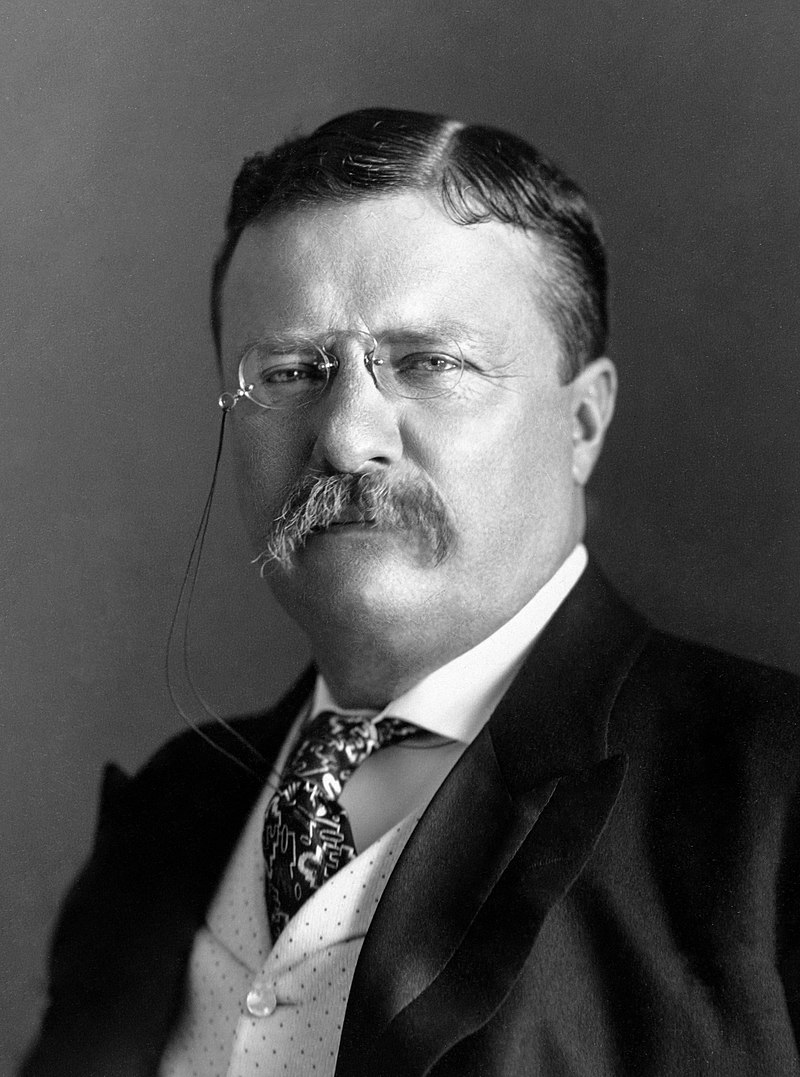In the annals of history, Theodore Roosevelt and Trust Busting are synonymous. Even though he had been born into a family of privilege and power, he was raised to respect hard work and ‘fair play’. During his rise in political office, he witnessed the massive, exponential growth of industry superpowers such as J.P. Morgan and John D. Rockefeller. Disgusted by such unchecked power and wealth, Teddy decided he would fight the system and change the system.
Informally known as a trustbuster Theodore Roosevelt frequently went against popular political opinion to protect the American people. When he took office in 1901, the Sherman Antitrust Act had been in place for more than a decade. However, despite its goal of encouraging fair competition in the marketplace, the act had (so far) been an ineffective weapon. Established to prevent monopolies – or dismantle those already in existence – and encourage fair competition and prices for average citizens, the statute was far-reaching and would have been very effective. Unfortunately, most politicians ignored the law and refused to enforce it. Then Roosevelt took office in 1901, and immediately set to work putting the Act to good use.
His first major attack against monopolistic corporations, using the largely-ignored Sherman Act, was none other than J.P. Morgan himself. Head of the Northern Securities Company, a colossal railroad trust which threatened any chance of competition. In 1902, Roosevelt ordered his Attorney General – Philander C. Knox – to file suit against Morgan for restricting trade by limiting traffic between Chicago and the Northwest. Morgan pleaded with Teddy, along with Mark Hanna (a former political colleague and advisor to Roosevelt) but their requests fell on deaf ears. Long tired of the corporate stranglehold on the country, Teddy was determined to make progress. In 1904, the U.S. Supreme Court voted five to four in favor of the government, ordering the NSC to be dismantled. This victory served to re-define the highest court’s view of trusts, stopped an impending national railroad consolidation in its tracks, curtailed public interest in holding companies, and made Teddy more popular than ever among the average citizenry.
Following the success of dissolving NSC’s trust, Theodore was instrumental in encouraging the study of another conglomerate monopoly, which eventually led to its demise. John D. Rockefeller’s company – Standard Oil – was the largest monopoly of its time. Following the federal Commissioner of Corporations study of Standard (from 1904-06) it was determined that the company had engaged in purposely deceitful tactics to raise prices for consumers and competing interests, in order to maintain its hold on the market. After years of court battles, in 1911 the Standard trust was finally dissolved and broken into 33 separate companies.
It’s no secret that Theodore Roosevelt and trusts were bitter enemies. Yet, despite his infamy as a trust buster Theodore Roosevelt remained popular with the people, while somehow managing to stay in the good graces of many political colleagues.

